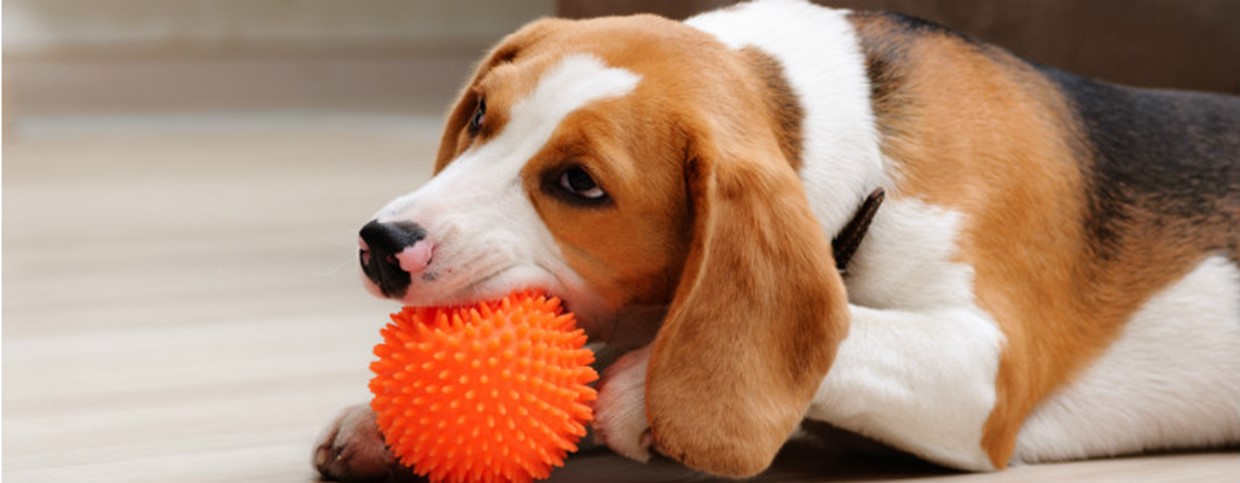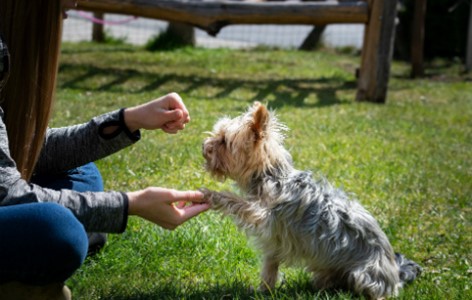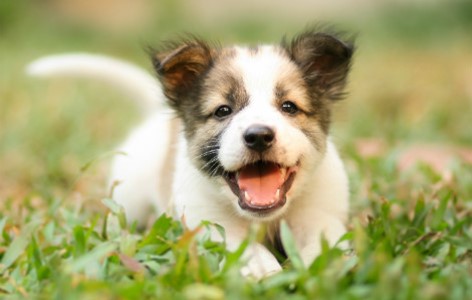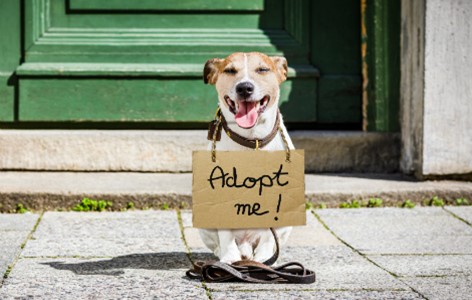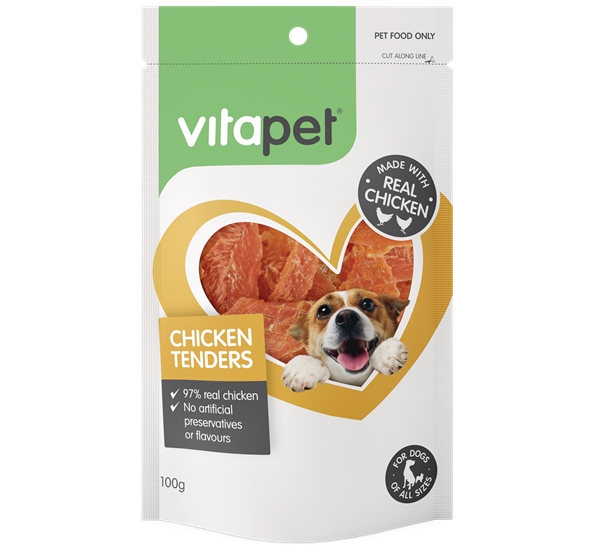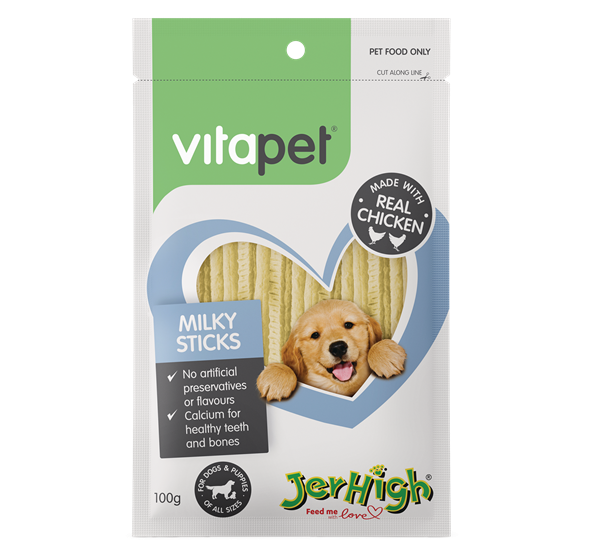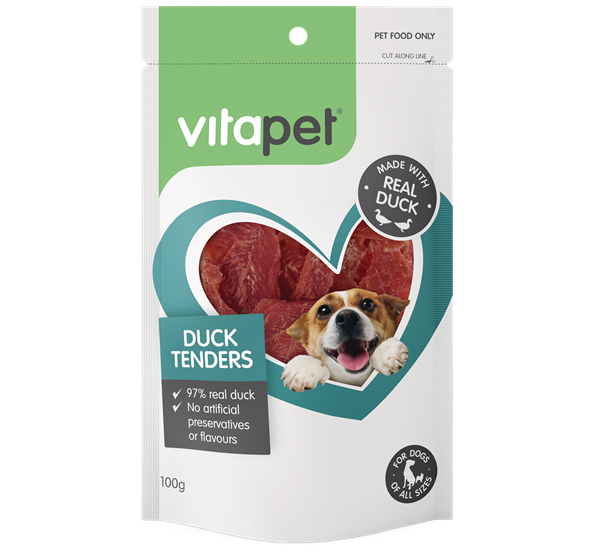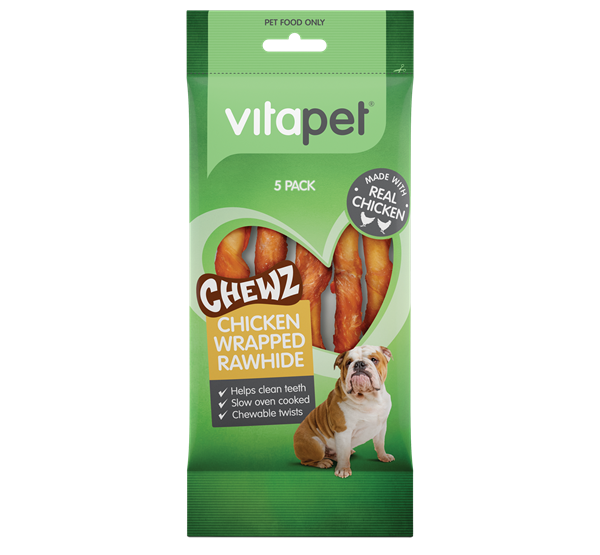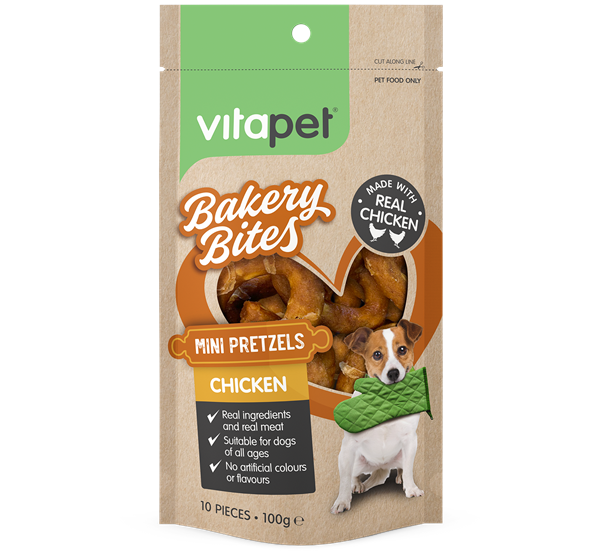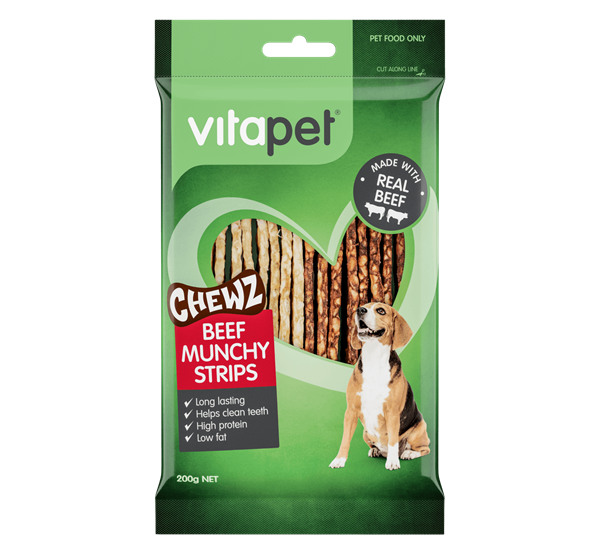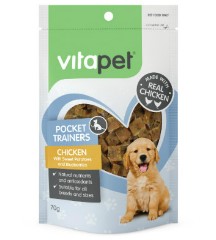Toys are very beneficial for puppies and not just to promote play.
Different types of toys can offer different benefits.
For example, chew toys can provide an appropriate outlet for exploration and normal chewing behaviour which is especially important during your puppy’s teething phase.
Soft toys can provide a sense of comfort and security, especially for very young puppies. Squeaky toys provide an appropriate outlet for puppies with high prey drive.
Puzzle toys, in which treats or a meal can be hidden, deliver feeding enrichment and opportunities for problem solving, scenting and physical activity. Another benefit of providing toys for new puppies is helping to alleviate boredom which could otherwise lead to the development of unwanted behaviour such as destructive chewing, digging or excessive barking. Providing puppies with a variety of toys is therefore important for their welfare in terms of both their physical and psychological health.
But how do you choose the best toys for your puppy?
Try to choose a variety of toys for your puppy that promote both playing on their own and also with you.
Puppies need to learn that being away from you can be a pleasurable experience as this can help prevent the onset of separation anxiety. Playing a game of fetch, tug or find it with your puppy can help to build a strong bond through shared positive activities and experiences. They get much more out of toys and accessories than, let's say, a pet fish.
Choosing the Right Toys
It’s important to choose toys that are suited to your particular puppy in terms of their age, breed and size. For example, some breeds, like Labradors, are strong chewers and may need toys specifically designed for heavy chewers. Other breeds really enjoy retrieving and love toys they can carry in their mouth like balls or rope toys. Most toys for puppies will provide an indication of what size or breed of puppy they’re most suited to.
Your puppy may also display preferences for certain types of toys, so it’s a good idea to experiment with a variety of different toys to see what kind they prefer.
Remember to supervise your puppy to ensure they are playing with their toys safely and not chewing off and ingesting pieces as this could pose a health risk. Replace worn toys when needed and introduce new toys regularly to maintain your puppy’s interest.
Rotating toys every few days is another way to keep your puppy interested in their toys.












